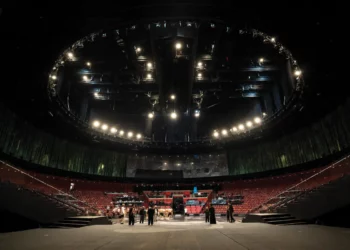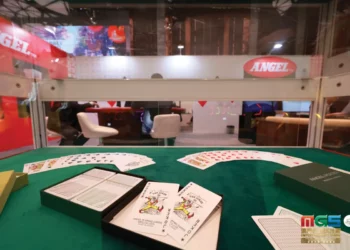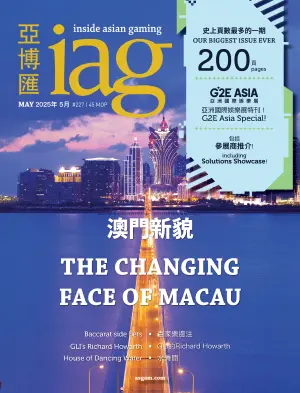Taking the commercial shackles off the Hong Kong Jockey Club is the best way of tackling unlicensed soccer betting in Hong Kong
Hong Kong’s leading English-language daily newspaper, South China Morning Post, called in mid-July for a ‘debate’ on ending the legal betting monopoly enjoyed in Hong Kong by the Hong Kong Jockey Club (HKJC).
The paper says it’s necessary because the current system regulating legal betting in the city isn’t working. The SCMP cites as an example the record seizures of cash generated by unauthorised soccer betting syndicates in Hong Kong and across the border in mainland China during this year’s FIFA World Cup in South Africa.
The SCMP suggests this is because the HKJC’s soccer betting offer isn’t appealing enough to punters. It says the debate should include the possibility of licensing private gaming franchises within Hong Kong. That would potentially be a revolutionary change from the system in place since 1952, when the custodians of Hong Kong’s horse racing club came up with a novel way to raise tax in order to house a million Chinese immigrants fleeing the mainland following the victory of Mao Zedong’s communist party in China’s civil war.
Focusing the debate on present needs, the SCMP states: “Other jurisdictions have got around the dilemma by licensing private gaming franchises, bringing them under regulatory control and into the tax net. Illegal operators are either crowded out of the market or have to accept a smaller market share. In a perfect world, the Jockey Club model might well socialise all gambling. In the real world, the community should have a serious debate about it.”
Wrong fix?
The SCMP’s instincts in calling for an end to HKJC’s monopoly are impeccably capitalistic in the tradition of the Shanghai entrepreneurs who fled to Hong Kong after the communist government took power in China in 1949. The paper may, however, be missing some of the bigger picture.
HKJC has actually been as proactive as the government will allow it to be in expanding its gaming offer in the face of dwindling interest in horse racing among the younger generation. Its annual report for the year ended 30th June 2009 shows that HKJC’s turnover from soccer betting has risen more than tenfold since it first introduced the product range in 2003. In the 2003-04 results, soccer betting generated HK$3.3 billion (US$420 million at current exchange rates) in pre-tax revenue for HKJC. In 2008-09, it brought in HK$35.1 billion (US$4.52 billion). That’s not bad from a single betting product stream targeted at a purely domestic market of around 5.5 million adults. It compares pretty favourably with the US$15.4 billion generated by games of fortune in Macau in 2009 by 21.7 million visitors.
Large amounts of revenue from horse racing have been reinvested into HKJC’s racing infrastructure and marketing. As a result, in 2008-09, football betting contributed more (HK$370 million) to community causes via the HKJC Charities Trust than the core horse racing product (HK$110 million).
The Jockey Club has argued publicly and privately in the past that the issue is not whether private gambling franchises should be allowed as alternatives to the HKJC, but that the Club itself should be allowed to pursue a more aggressive commercial policy. That’s in terms of reducing the tax levied on the bets, making larger the maximum daily dividends allowed, increasing the betting products offered and in developing the way products are delivered to customers. All these suggested initiatives are designed to fend off the competitive threat from the unauthorised bookmakers.
The SCMP acknowledges that aspect of the problem in its leader.
“It [the HKJC] has struggled to compete or wring concessions out of the government, such as more race days and more flexible betting on major overseas horse races. Officials appear to be more concerned about avoiding antagonising the antigambling lobby of church and education groups that campaigned unsuccessfully against legalising soccer betting seven years ago. Yet any widespread gambling interest among the public that is not satisfied by the club is bound to become a goldmine for illegal bookmakers and organised crime syndicates,” says the paper.
The Jockey Club has been offering ‘in play’ and so-called ‘Asian handicap’ online betting on soccer games, including the major European Leagues and FIFA tournaments, since 2003.
Gee up
Their introduction did result in new betting business coming to HKJC. In financial year 2003-04, the Club’s total revenue from all activities showed the first upward trend since 1997. The Hong Kong government claimed in 2003 that the advent of HKJC Football Betting—as the product is marketed—actually resulted in a decline in Hong Kongers betting illegally. Given that unauthorised betting is by its nature underground, one wonders how the government could be so sure. What we can say is tax revenues from the Club’s football betting in the 2003-04 soccer season rose 64.3% from HK$1.65 billion (US$210 million at today’s exchange rates) to HK$2.71 billion (US$350 million).
The problem now seems to be that the unauthorised bookmakers have either clawed back ‘market share’ on soccer gambling or simply created new demand. A likely reason for this is that illegal bookies can offer a bigger percentage in prize money of the cash originally staked than HKJC, because they don’t have anything like the same overheads. In particular, they have no need to share revenue with the authorities either in tax or payment to community causes. Tax is levied at 50% of net stake receipts for HKJC soccer betting and the Club also gives some of its operational surplus on all betting operations to community causes. The unauthorised bookmakers—provided they have a sufficiently large prize pool—can potentially offer bigger individual dividends than the HK$10 million (US$1.29 million) per account per betting day allowed by HKJC. Illegal bookies also reportedly offer punters credit for gambling; something which, for regulatory and ethical reasons, the HKJC simply cannot do.
Issuing commercial franchises for gambling services within Hong Kong as suggested by the SCMP would only help legitimate operators to compete with illegitimate ones on prize money if the tax burden on the legal product was drastically reduced. And issuing new commercial franchises won’t of itself deal with the competitive threat posed by gambling credit issuance by the unlicensed product. The chances of Hong Kong allowing credit-based soccer betting in the manner of credit-based VIP table play in Macau, with credit issuance by the bookmakers and any player losses covered by those players liquidating assets if necessary, is so remote as to be barely worth considering.
Short of every Internet and telephone user in Hong Kong having to give their identity card number every time they want to surf online or make a voice call (with all the civil liberties implications that involves), it’s difficult to see how unauthorised online and proxy telephone betting can be stopped.
Upward trend
Records seized by the authorities detailing illegal online and proxy telephone betting in Hong Kong during the duration of the World Cup up to the 7th July recorded HK$270 million (US$34.7 million) being wagered—nearly four times as much as during the previous tournament four years ago, said the SCMP.
Perhaps one possible remedy to stem the illegal betting tide would be to allow the gaming operators already in Macau—who have the longest exposure and greatest experience of free market competition in gaming services—to offer sports betting in Macau casinos and to create a parallel online sports betting offer that can be accessed by Hong Kong residents. Every time a Hong Kong resident used the service, the Hong Kong government could then be paid a share of the tax revenue levied on the bet, as happens with the so-called Australian model of inter-state online gaming.
This was pretty much the proposal made back in 2007 when Jorge Oliveira, who at that time was the Commissioner for Legal Affairs of the Macau Gaming Commission, said an online gaming bill could be in place in two years.
Shortly after the impromptu announcement at a gaming industry conference, Las Vegas Sands Corp said it was interested in running online sports books from its properties, in the manner of Las Vegas casino sports book operations.
Parallel bookmaking
One serious flaw in this plan is that it would be next to impossible to block such legitimate online sports betting sites from mainland Chinese customers. Some enterprising souls would in all likelihood set up proxy or ghost servers with innocuous http addresses to link to the legitimate gambling site even if China’s Internet firewall blocked the official site. Even if credit card issuers within China were able to block payments and settlement involving mainland residents, unauthorised bookmakers in China would still be able to use the prices quoted in the legitimate online product to make their own book, and collect bets by phone free of tax, as allegedly happens now with unlicensed bookies on the mainland using MacauSLOT soccer betting prices.
That potential loophole, and the vested commercial interest of Macau’s current online horse racing, soccer and basketball betting monopoly MacauSLOT, majority owned by Dr Stanley Ho’s STDM, is probably why the idea of other online sports betting domiciled in Macau seems to have gone off the agenda.
In September last year, Manuel Neves, Director of Macau’s gaming regulator, the Gaming Inspection and Coordination Bureau (DICJ), told Macau Business the legalisation of online gaming “was never a priority”.
Times and opinions do of course change. But the main impediments to Macau-based cross border online sports betting seem to be political. Chief among the objections seems to be the possible piggy backing of illegal bookies on the official product and such parallel services then being offered to mainland Chinese customers. So until something changes in the political landscape regarding the way these three jurisdictions—the People’s Republic of China, Macau SAR and Hong Kong SAR—think about cross border online sports betting, expect to see more police raids and enforcement action against unauthorised bookmakers during major international football and other sports tournaments.































